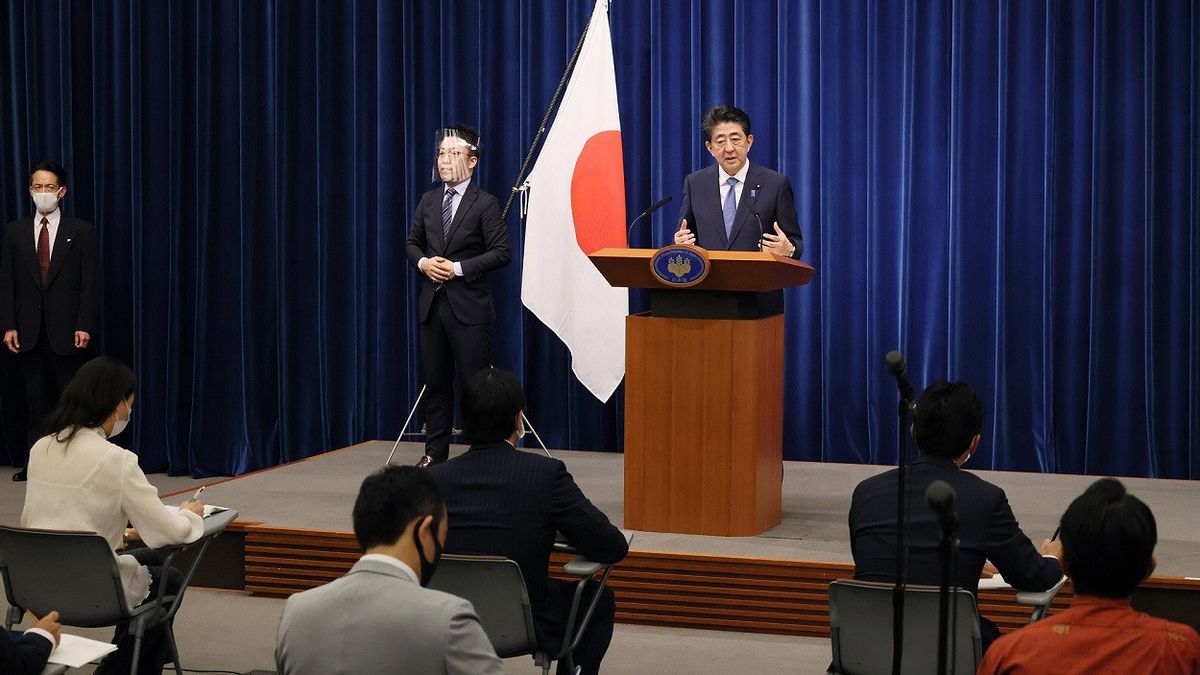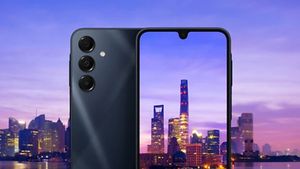JAKARTA - Shocking news came from the city of Nara, Japan, when former Prime Minister Shinzo Abe was shot while campaigning in public spaces on Friday, before finally turning a blind eye hours later.
Shinzo Abe, Japan's longest-serving prime minister, is known for lifting the economy from chronic deflation with the bold 'Abnomics' policy, strengthening the military and fighting China's growing influence, dying at the age of 67.
First prime minister in 2006, lasts just a year, he was then re-elected second time in 2012 to 2020. He promised to revive a stagnant economy, loosen the boundaries of the Second World War passive constitution and restore traditional values.
Abe became Japan's longest-serving prime minister in November 2019, but in the summer of 2020, support has been eroded by its handling of the COVID-19 outbreak as well as a series of scandals including the arrest of its former justice minister.
This condition forced him to resign in September of that year, without achieving his long-standing goal of revising the constitution or leading the Olympics, which had been postponed to 2021 due to the pandemic.
However, he still dominates the ruling Liberal Democratic Party (LDP), even still controlling one of its main factions. In fact, the campaign that was carried out when shot today, for the party ahead of Sunday's election of the High Council.
Abe first took office in 2006 as Japan's youngest prime minister since the Second World War. After a year of political scandals, voters' anger at losing retirement records, and losing elections to the ruling party, Abe stopped for bad health reasons.
"What worries me the most now is that due to my resignation, the conservative ideals raised by Abe's administration will fade," Abe wrote later in Bungei Shunju magazine.
"From now on, I want to sacrifice myself as a member of parliament to make true conservatism rooted in Japan."
Five years after stepping down, which he accused of causing ulseratimate colonitis disease, Abe led his conservative LDP - which was ousted in 2009 - to return to power.
He then unveiled a three-branch 'Abnomics' strategy to defeat continued deflation, reviving economic growth with very easy monetary policy and fiscal spending, along with structural reforms to tackle a rapidly aging and shrinking population.
However, it is not an easy matter to deal with deflation, with its growth strategy suffering in 2019 due to an increase in sales taxes, as well as China-US trade war. The COVID-19 pandemic a year later deepened Japan's economic slump.
At the start of the pandemic, Abe took the time to close Japan's borders and implement a state of emergency urging people to stay at home and shops to close. Critics initially branded the response awkward and then blamed Abe for a lack of leadership.
When he resigned on the grounds of the same gut disease, Japan's COVID-19 death rate was well below many other developed countries.
Abe comes from a rich political family that includes the father of the foreign minister and the chief uncle who served as prime minister. But when it comes to many policies, his grandfather, the late Prime Minister Nobusuke Kishi, seems to be the most important.
Kishi was a imprisoned cabinet minister, but was never tried as a war criminal after World War Two. He served as prime minister from 1957 to 1960, stepping down due to the public's excitement over the renegotiated US-Japan security pact.
Five years old at the time, Abe was famous for hearing the voices of clashes between the police and the left mob protesting the pact outside parliament as he played on his grandfather's lap.
Kishi failed to revise the 1947 Japanese constitution designed by the US to become a security partner on par with the United States and adopt more firm diplomacy, issues important to Abe's own agenda.
Jumping in office, Abe stepped up defense spending and reached out to other Asian countries to fight an increasingly assertive China. He pushed through the law to allow Japan to exercise the right of "self-defense together", or militarily assisting the attacked allies.
The revision of the passive constitution remains a top priority for Abe, the goal being debated as many Japanese people see the charter responsible for the country's postwar peace record.
Abe's fundamental agenda is, regardless of what he calls a post-war regime, a US occupational legacy that conservatives say depriving Japan of national pride. reforming the education system to restore traditional customs is one of its goals.
Although Abe is also trying to improve relations with China and South Korea, where the bitter memories of the war period went deep, he angered the two neighbors in 2013 by visiting Tokyo's Yasukuni Temple, which Beijing and Seoul see as symbols of Japan's past militarism.
In the following years, he refrained from visiting him in person and instead sending ritual offerings. On the other side of the Pacific, Abe is in a close relationship with US President Donald Trump, playing golf, and making frequent phone calls and meetings.
The shooting that killed Abe surprised Japan, as the Land of the Rising Sun regulates weapons strictly and political violence is very rare.
From Abe Prime Minister Fumio Kishida's students to ordinary people on social media, there is an outpouring of sadness in a country where political violence is very rare for the last time a former or prime minister or in office was killed nearly 90 years ago.
"I am very surprised," Tokyo Governor Yuriko Koike told a regular news conference before Abe's death was announced, holding back tears and sobbing. "Whatever the reason, such heinous acts really cannot be forgiven. This is an insult to democracy."
It is known that arms possession restrictions in Japan do not allow citizens to own a gun. Licensed hunting is only allowed to have a rifle. Gun owners must attend classes, pass written tests and undergo mental health evaluations and background checks.
The shooting, when it happened, usually involved "yakuza" gangsters using illegal weapons. In 2021, there were 10 shooting incidents, eight involving gangsters, according to police data. One person was killed and four injured.
The last time a former prime minister was killed was in 1936 during Japan's pre-war militaryistic development, one of a series of similar killings.
It is known that the man arrested for allegedly shooting Abe, Yamagami Tetsuya (41), was a former Japanese military member who fired homemade firearms, according to media reports. Defense Minister Nobuo Kishi, Abe's brother, declined to comment on the report.
The English, Chinese, Japanese, Arabic, and French versions are automatically generated by the AI. So there may still be inaccuracies in translating, please always see Indonesian as our main language. (system supported by DigitalSiber.id)








